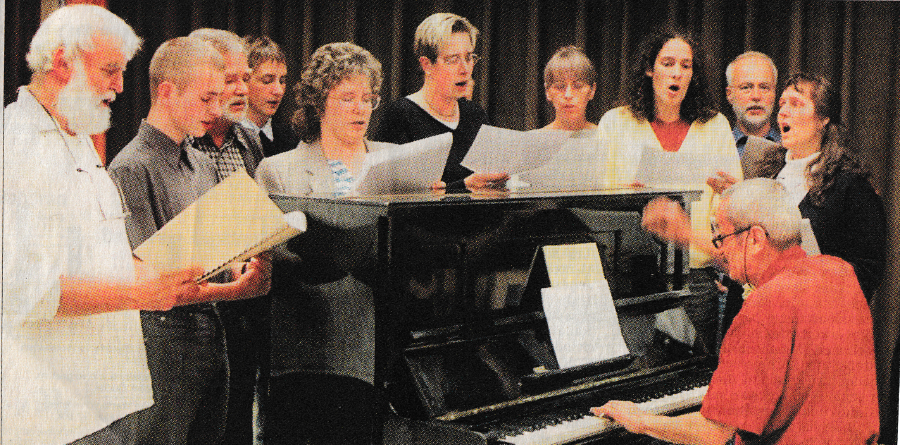KITO Chor
Last updated: 10.10.21
 When living in Bremen-North for some 30 years at that time, I was a regular visitor to many different events, both musical and other, at KITO in Bremen-Vegesack. Indeed, I got to know KITO very well when organising my own events namely Ceilidh 1998 and Ceilidh 2000 when the Hößelbarth brothers, Claus and Lutz, were managing "Das alte Packhaus". Playing to a full house in KITO is something special and for my part particularly memorable. The KITO team provided excellent support .
When living in Bremen-North for some 30 years at that time, I was a regular visitor to many different events, both musical and other, at KITO in Bremen-Vegesack. Indeed, I got to know KITO very well when organising my own events namely Ceilidh 1998 and Ceilidh 2000 when the Hößelbarth brothers, Claus and Lutz, were managing "Das alte Packhaus". Playing to a full house in KITO is something special and for my part particularly memorable. The KITO team provided excellent support . When I heard from Monica Jenne of De Saitenspeeler (with whom I occasionally performed) that Hartmut Emig was forming a choir and she was joining then I was keen to join too. Now Hartmut was well-known as the leader of a shanty choir Hart Backbordof which Brian Kelly had been a member. I got to know him fairly well when doing a little translation for his songbook Haul Away.
I really admired his chosen pieces for the choir introducing to the worlds of Arvo Pärt, Heitor Villa-Lobos and the renaissance composers. It was very sad that the choir was short-lived because of Hartmut' serious illness. When he happily returned from death's door, Egbert Heiß and I gave a rendering of Ein Mann geht nicht unter at his welcome home party amongst his friends and admirers.
The choir was obliged to change its rehearsal room from KITO itsef to the Grohn Gemeindehaus due differences between a choir member, Urmgard Farhi, and KITO-CEO, stefan Linke.
By the way, when I first came to Bremen in 1983, Vegesack was still engaged in the fishing industry herring loggers being regularly landed there. Now the name KITO is said to derive from "Kisten Tod" [death box - coffins] meaning boxes to pack canned fish. It maybe however that Claus Hößelbarth had another definition.
| Title | Composer | Parts | Suppliers | Remarks |
|---|
 |
Filles à marier | Gilles Binchois | SATB |    |
|
 |
Sanctus | Clemens non Papa | 2 Sopranos/ATB |  |
|
 |
De profundus clamavi | Michel-Richard de Lalande | 2 Sopranos/ATB |   |
|
 |
Missa Mi-Mi | Jean de Ockeghem | SATB | 


|
  |
 |
Magnificat für gemischten Chor | Arvo Pärt | Soprano Solo/2 Sopranos/ATB | 




|
    |
 |
O salutaris hostia | Pierre de la Rue | SATB | 




|
  |
 |
Auê! senhora terra | Heitor Villa-Lobos | SATB | 




|
 |
 |
Olha a rosa amarel | Heitor Villa-Lobos | SATB | 




|
  |

